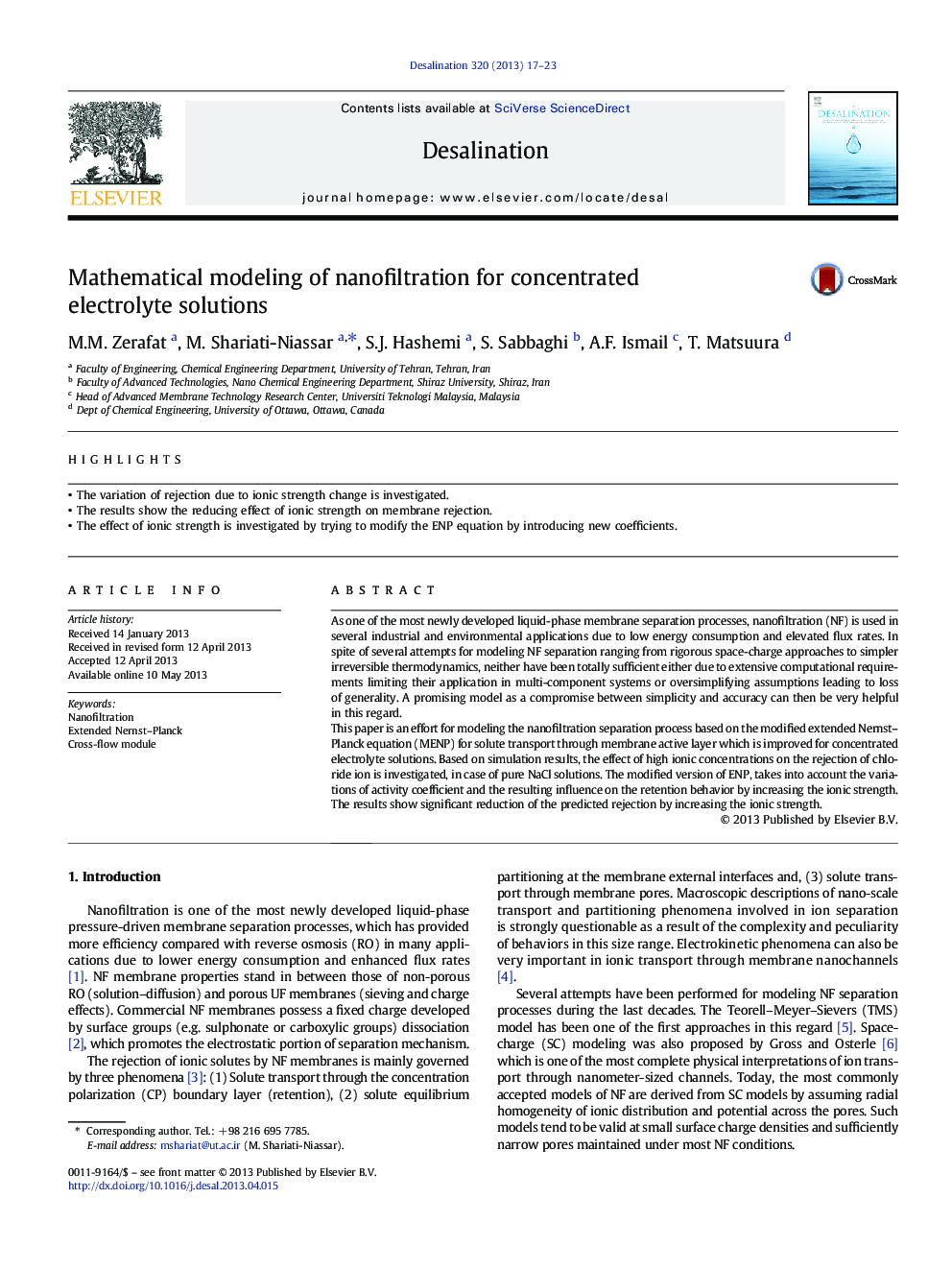| Article ID | Journal | Published Year | Pages | File Type |
|---|---|---|---|---|
| 624011 | Desalination | 2013 | 7 Pages |
•The variation of rejection due to ionic strength change is investigated.•The results show the reducing effect of ionic strength on membrane rejection.•The effect of ionic strength is investigated by trying to modify the ENP equation by introducing new coefficients.
As one of the most newly developed liquid-phase membrane separation processes, nanofiltration (NF) is used in several industrial and environmental applications due to low energy consumption and elevated flux rates. In spite of several attempts for modeling NF separation ranging from rigorous space-charge approaches to simpler irreversible thermodynamics, neither have been totally sufficient either due to extensive computational requirements limiting their application in multi-component systems or oversimplifying assumptions leading to loss of generality. A promising model as a compromise between simplicity and accuracy can then be very helpful in this regard.This paper is an effort for modeling the nanofiltration separation process based on the modified extended Nernst–Planck equation (MENP) for solute transport through membrane active layer which is improved for concentrated electrolyte solutions. Based on simulation results, the effect of high ionic concentrations on the rejection of chloride ion is investigated, in case of pure NaCl solutions. The modified version of ENP, takes into account the variations of activity coefficient and the resulting influence on the retention behavior by increasing the ionic strength. The results show significant reduction of the predicted rejection by increasing the ionic strength.
